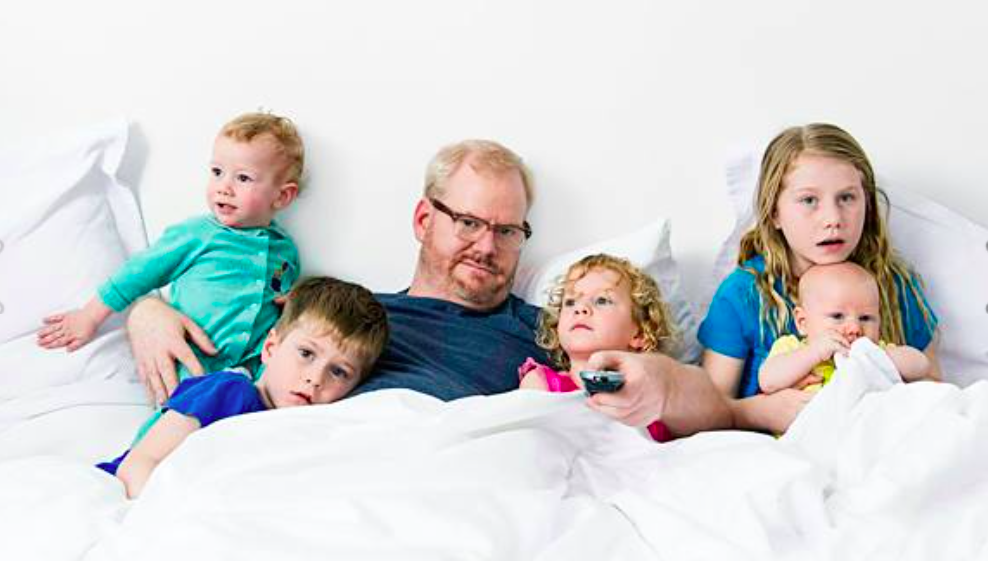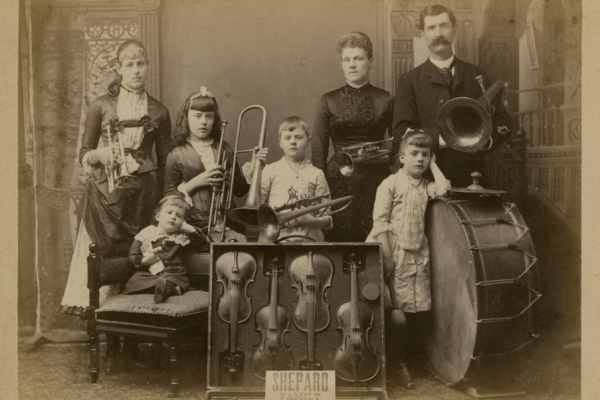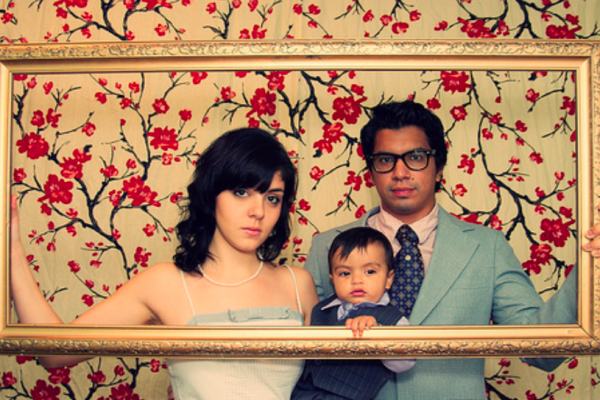
3 Selfish Reasons To Have Kids
Are you thinking about whether you will have kids? Or maybe of having or adopting another one? Maybe you’re a parent in the trenches of two-year-old tantrums or tween eye rolls and you’re struggling to see the positive side…
Since having our own kids, I’ve come to realize how many people think parenting is an unfortunate or even foolish choice (particularly if it involves more than two kids) – judging by the contemptuous tone and look of hardly-masked disgust as multiple strangers ask Julie and I, ‘Are ALL those kids yours?’
It reminds me of a recently published book, ‘Selfish, Shallow and Self-Absorbed’ in which 16 people write compelling reasons for bypassing having kids. (At least, one of these 16 has since changed her mind.) They describe…
- their traumatic experiences at the mercy of indifferent, abusive, or negligent mothers and fathers;
- a gut feeling that they did not have what it takes to properly nurture children; and
- their craving for the freedom to advance in their career without distraction.
There’s more reasons I’ve heard people give for not having kids…
- Raising children is all-consuming and hard. The parenting happiness gap – a significant drop in daily happiness that lasts about two decades – is a well-established fact. In previous posts I highlighted this. Just a few minutes ago, I found my entire library of books on the ground, and I had that sinking feeling again as I realized afresh that this is my circus, and these are in fact my monkeys. Last weekend I laughed as a parent of two teenagers told me, You know those NatGeo programs where adults eat their kids? I now understand why they would do that. I laughed. But she didn’t laugh back; she was dead serious.
- Marriages tends to take a knock. Daniel Gilbert summarizes the findings of 4 studies to show that marital satisfaction decreases dramatically when childrearing starts and only increases once your last child leaves home! (About 60% of all the squabbles Julie and I get into are directly related to parenting, and I guess that most of the other 40% result from the shorter fuse we have as a result of being parents.)
- Not everyone can find a life partner suitable to the task of raising offspring with.
- Some couples are infertile, and don’t want to or have not been able to adopt.
- Others feel the planet is wilting from overpopulation as it is. On this point, do I feel bad that I have added 5 more? Not really, when I consider that about 800 millions kids were born in the 6 years we had ours. We merely sprinkled 5 more grains of sand on a very large sand dune. (And besides, somebody had to grab the unused offspring-tickets from those 16 authors in that book I just referred to.)
So many reasons to not have kids. And yet still…
Having kids is the best thing we’ve done.
Why do Julie and I, fatigued as we are, still think that having lots of kids is the best thing we’ve ever done?
In my next post, I will mention 3 unselfish reasons to have kids, but in this post I want to highlight the selfish reasons. There are 3 of them…
1. Sure, when kids come, one’s happiness levels drop, but meaning levels tend to rise in its place.
We’re happiness-crazy in our culture. It’s our birthright, so we think, and for many of us the primary reference point in all our decision-making.
The problem is that we tend to over-rate happiness and under-rate meaning. Satiated with happiness in a consumeristic era, so many of us don’t realize that there’s something missing from our lives. And yet something like 40% of adults admit they don’t have any real sense of purpose. Despite having a life of relative ease, if we don’t have a gripping sense of purpose, research shows a long-term decrease in well-being, life satisfaction, mental health, physical health, resiliency and self-esteem.
Psychologist, Victor Frankl who chronicled his experiences at an Auschwitz concentration camp in his landmark book, ‘Man’s search for meaning’ makes the point that a happiness-orientation sets one up for implosion when hardships come. He shows how meaning-mongers, on the other hand, are built for adversity – and that a deeper kind of joy is found in a life of meaning.
I think of parents of special-needs children. I heard one of them say, ‘This is the hardest thing that has ever happened to me, and also the best thing that ever happened to me. If I could do it again, I would – nothing has so grown and deepened me as a person.’
That’s the power of finding meaning in the place where happiness seemed to drain out of one’s life for a time.
A recent study based on 400 adults highlighted the difference between happiness and meaning. It reveals that the two don’t always go hand in hand. The researchers are led to conclude that, if one must choose, meaning is more important than happiness…
“Happiness without meaning characterizes a relatively shallow, self-absorbed life, in which things go well, needs and desire are easily satisfied, and difficult or taxing entanglements are avoided. Happiness is about feeling good. People who are happy tend to experience ease, good health, an ability to buy the things that they need and want, and a lack of stress or worry.”
The authors then give an evolutionary explanation for this: “Happiness is about drive reduction. If you have a need or a desire, like hunger, you satisfy it, and that makes you happy. People become happy, in other words, when they get what they want. Humans, then, are not the only ones who can feel happy. Animals have needs and drives, too, and when those drives are satisfied, animals also feel happy. What sets human beings apart from animals is not the pursuit of happiness, which occurs all across the natural world, but the pursuit of meaning, which is unique to humans.”
Where is a sense of meaning found? The study participants reported deriving meaning from giving a part of themselves away to others and making a sacrifice on behalf of others. Said another way, happiness is about having my needs met; meaning is about serving the needs of others.
All of this sounds very much like parenting.
Since the moment we drove our firstborn Eli back from the hospital at 30 km/hr, we have been more stressed, but at the same time we have been dynamically infused with an unfaltering sense of purpose and meaning: whatever it takes, look after this life, and set it up to thrive for a lifetime. I’m not saying that we didn’t already have a sense of purpose when it was just the two of us (gratefully, we did) but having kids has served to compound the meaning already present in our lives.
My pregnant, teenage mom went to a doctor to have me aborted. Instead of immediately agreeing, he asked her if she wanted to hear my heartbeat. The moment she did, she tells me she was overcome with a sense that God was giving her a job to do: ‘Bear and raise this life’. I am so glad my mom chose to sacrifice decades of happiness (she was a single mom for most of my life) in the pursuit of getting that job done.
2. Parenting teaches us to (really) love.
This morning I spent some time with my 84-year-old gran who will likely die in the next week or so. Cancer-riddled and penniless, she has been stripped of all dignity except for one thing – life has made her one of the most loving people I know, a loving nature that shines even as everything else fades. Instead of wanting peace and quiet in these last days, she insisted we bring all our kids to the hospice and then insisted we wheel her bed to the window so she could watch them running free in the garden outside. Watching her watching them was something to behold. At the end of the road, when all the rushing and grappling is over and we’re on our deathbeds – love outlasts it all. Popularity, success, wealth… they’re all hollow companions compared to the living, breathing people we’ve loved and served with our one and only lives.
What kind of person do you hope to become as the decades tick on? I hope to become more loving.
Not just sentimentally more loving, but unconditionally loving, the kind that takes years and years to forge, the kind we hear about at almost every wedding we attend…
Love is patient. Love is kind. Love is not self-seeking. Love always trusts.
My experience is that it is not only in marriage but perhaps even more so in parenting that we have opportunity to grow in this authentic kind of love. How so? Well…
Parenting is teaching me that love is patient. Patience can only form over a long time, as we are exposed to 100’s of situations that slow us down and frustrate us. We tend to put so much energy into controlling situations and others that many of us forget to grow in self-control. Patience is the ability to infuse the seconds and minutes of being slowed down by young lives with meaning, with breathing more deeply, with self-control and calm. I have discovered that my home is not a factory where inanimate parts function together for optimal efficiency. No, it is a family of complex people, each with their own set of wishes and desires.
Like you, I sometimes excuse my impatience with the words, ‘I can’t help losing it with my kids. My kids drive me crazy.’ I have told myself this lie too. But we can control our impatience and our anger. We must. Victor Frankl reminds us that between the stimulus (our child’s non-compliance) and our response (to shout or to stay calm) is a small gap, called free will. Patience is a choice, a choice that needs to be made in the millisecond of a moment our child stalls or disobeys us, a choice that – after being made a 1000 times – starts to create a new groove in our character.
Parenting is teaching me that love is kind. So many of my more agro dude-friends have become nicer people when little children come under their care. (This has statistical verification.)
I don’t know about you, but I tend to forget what people say and do, but I seldom forget how they make me feel. One day, our kids will not remember the gifts or grand gestures, they’ll remember how kind we were – especially when we had every reason not to be. Of course we need to be firm with our kids, but firm is very different to aggressive.
Parenting is teaching me that love always trusts. This speaks of the vulnerability inherent in love.
Having witnessed the agony my mom has endured at the loss of my brother who would have celebrated his birthday today, I sometimes pray that my kids will outlive me. It’s scary to feel this emotionally invested in other humans. But I wouldn’t want it any other way…
One of my favourite authors articulates why: To love at all is to be vulnerable. Love anything and your heart will be wrung and possibly broken. If you want to make sure of keeping it intact you must give it to no one, not even an animal. Wrap it carefully round with hobbies and little luxuries; avoid all entanglements. Lock it up safe in the coffin of your selfishness. But in that casket, safe, dark, motionless, airless, it will change. It will not be broken; it will become unbreakable, impenetrable. To love is to be vulnerable.
Parenting is teaching me that love is not self-seeking. A mentor of mine commented to me the other day, I have always thought you had a deep selfish streak… how clever God is to have allowed all these kids into your life. Ouch!
There are few things less selfish than being a parent. Our kids start in a state of dependency. They can’t stand on their own. And if we fail to sacrifice they will never grow up. As Tim Keller says:
The only way your children will grow up to be self-sufficient adults and come out of their neediness is if you essentially drop-kick your life for 10 to 15 years. Unless you sacrifice your freedom and time enormously, unless you are willing to not just disrupt your life but to pretty much put your whole life on hold, they will not grow up. They will be broken, unable to fly. What if you choose not to make the sacrifice? In a few decades they might not be children anymore, but they will still be dependent – and their life would have been sacrificed by you preserving yours. It’s either them or you. You can stand in the place and make the sacrifice, or they will.
Have you spoken to adults who grew up afflicted by a narcissistic parent? I have. They’re profoundly damaged for it. If we as parents fail to learn to really love as a parent, not only do we miss out on engraining love into our consistent way of being, but our kids pay for it dearly too.
3. Parenting heaps up happiness in the long-term.
Parents of small or adolescent kids never say this to me, but tons of empty nesters do: I wish I had more kids.
Why is that?
In the longest study ever conducted on happiness, researchers studied the same people for 75 years and found that the biggest predictor of how long they would live, as well as how happy they would be in the final decades of their lives was the strength and number of their life-relationships by the time they were 50. Sure, having kids might take a toll on our happiness in the decades our kids are at home, but if we maintain good relationships with our kids and their kids, we are very likely set up for decades of health and happiness thereafter. I know there are no guarantees, but this optimism is based on hard data.
Who are the people in my gran’s life still? Not her friends – they have mostly already died. It’s her kids and their offspring. Though I hope to have many non-relative friends in my final decades, I’m guessing that the binding power of blood will mean that most of my best friends will be family.
I was chatting to a very proud and happy grandfather the other day. He told me that his adult children thrill him twice every time they bring their kids around. The first is that he gets to see and delight in his grandkids; the second is that after a few hours, they leave with their parents. I’m doubly blessed, he jokes.
But wait. I’m not suggesting that happiness is delayed totally. Ease-happiness has avoided me of late, but there is the deeper kind of joy that tends to break into a life of meaning often enough. For example, first seeing my kids kiss my gran bye-bye at 12pm today, then watching them splash about in a nearby wine-farm fountain-pool two hours later brought two moments of a deeper kind of happiness than I think my childless self came near to experiencing in a year. As Frankl says, True happiness cannot be pursued; it ensues as one lives for something greater than happiness, a meaning greater than itself.
So now for the concluding question…
Is parenting sacrificial or selfish?
Sure there are sacrifices, but as I reflect on these 3 reasons, it dawns on me that there’s nothing saintly about sacrificing for the sake of our kids. Sure, we might give up time, freedom and happiness for a while, but look what we get in return…
- a life pervaded with increased meaning
- 10,000 chances to become more loving
- a deeper happiness now, and decades of happiness later
Famous NYC comedian Jim Gaffigan, pictured atop, has 5 children. I love how he answers the “Why so many?!” question…
Well, why not? I guess the reasons against having more children always seem uninspiring and superficial. What exactly am I missing out on? Money? A few more hours of sleep? A more peaceful meal? More hair? These are nothing compared to what I get from these five monsters who rule my life. I believe each of my five children has made me a better man. So I figure I only need another thirty-four to become a pretty decent guy.
Comments
Also published on Medium.



